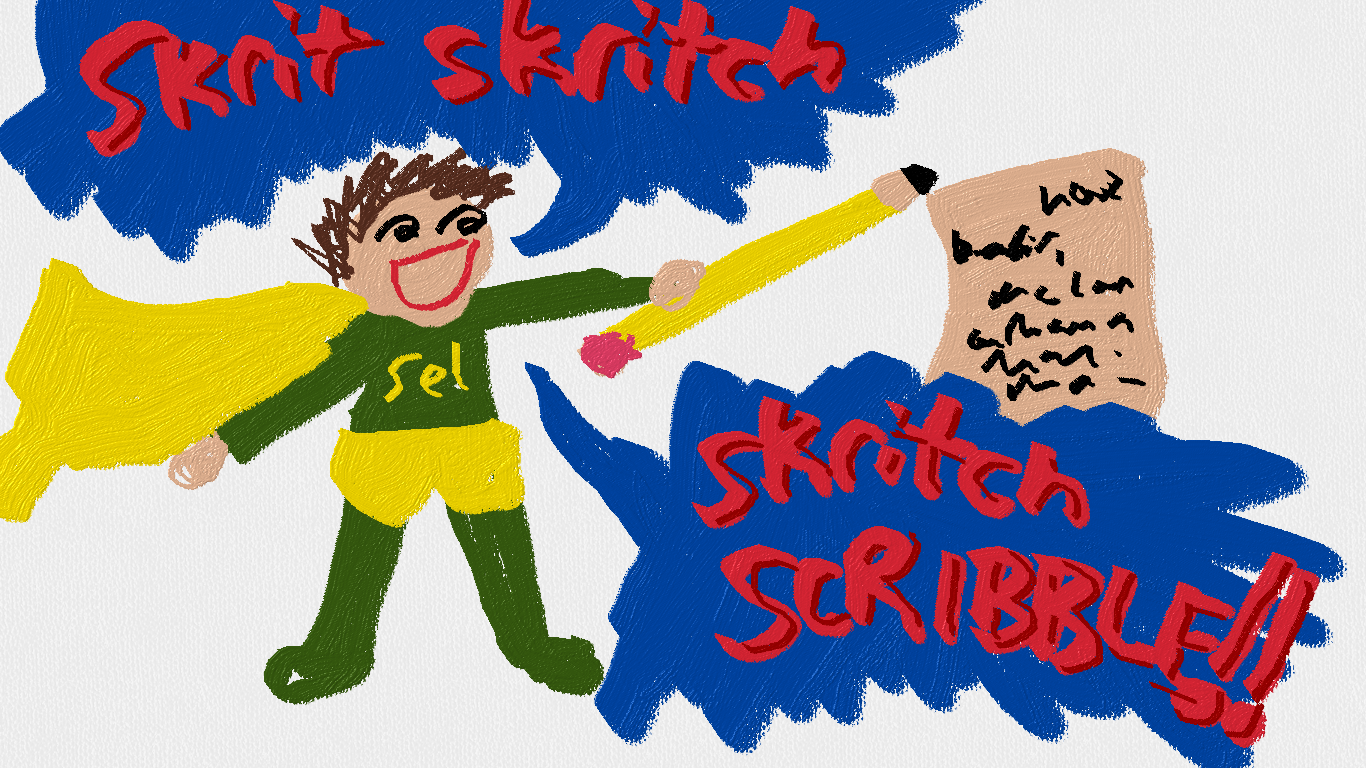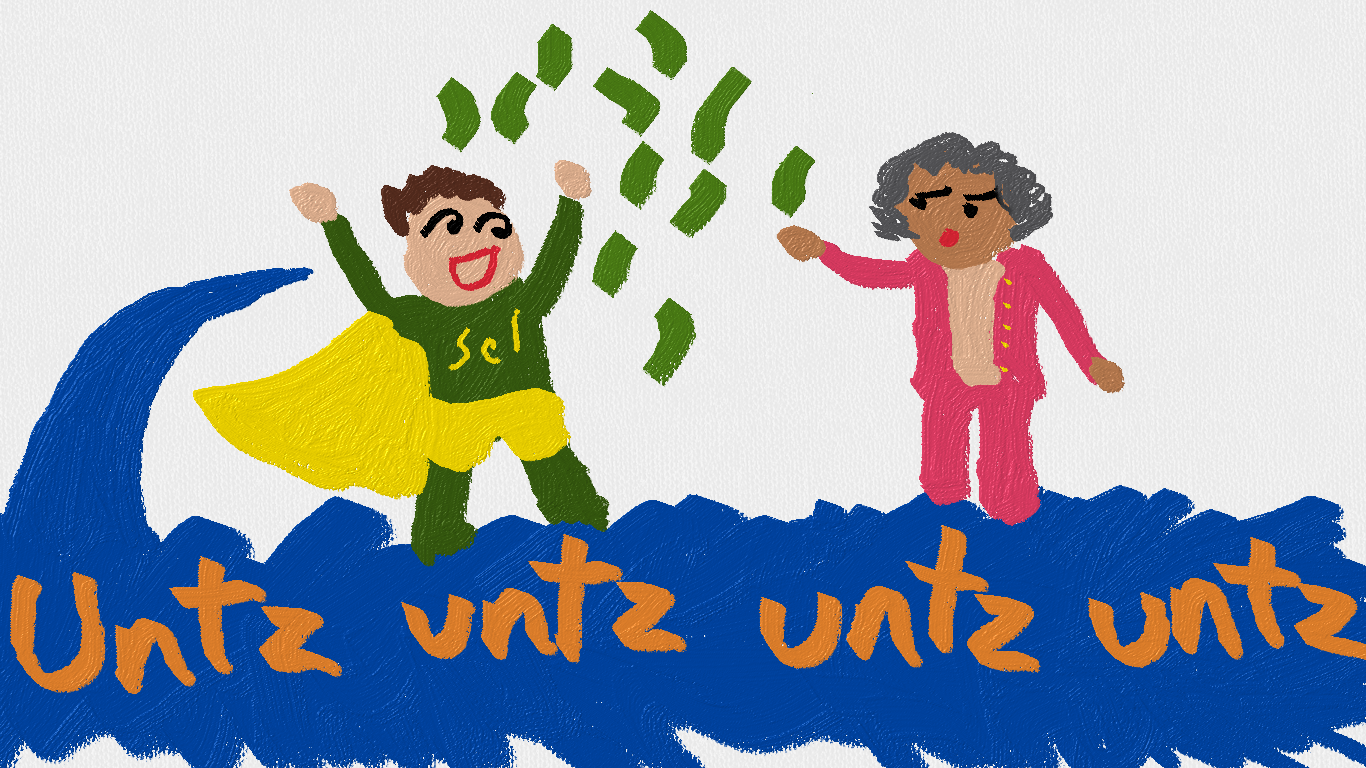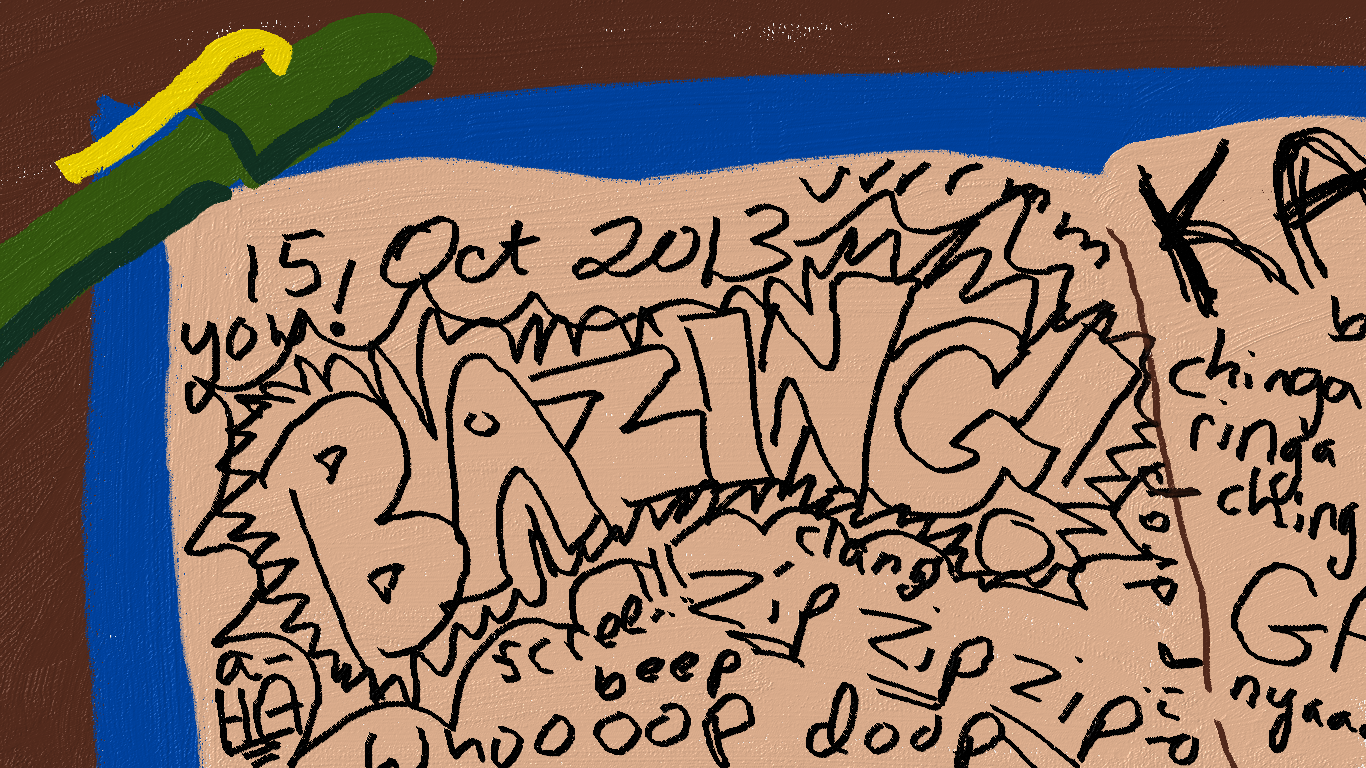Dear Language Nerd,
Sometimes when I am writing I use colloquialisms, but they can be obtuse. Sometimes they don’t feel right, but I don’t know why. What the heck is a colloquialism and why should I care?
Pete S.
P.S. – I find hand-drawn pictures are a very useful means to communicate language-related insight.
***
Dear Pete,
I just bet you do. The Language Nerd is skeptical, but as always, here to help.
What is or is not suitable for writing is a question of register – a subject I’ve discussed once before, brought up by someone with a suspiciously similar name. People use many different registers over the course of their lives, and often over the course of a day.
Let’s say everyone’s favorite superhero, Sound Effects Lad —
— writes a business letter. He’ll use particular words and phrases: “Dear Sir or Madam,” “contact me at,” “please find attached.” These are part of the business-letter-writing register, and would sound strange in everyday speech. Our hero knows better than to walk up to a shorty in the club and introduce himself with “Dear Sir or Madam.”
Conversely, he knows that “make it rain” is part of his club-scene parlance and unlikely to go over well in the letter detailing his requests for a corporate merger.
So, different kinds of writing or speaking are done in different registers. The same person will use different registers when giving a political stump speech and when chatting with a war buddy. Or when writing an analysis of the themes and motifs of Calvin and Hobbes and when writing a tweet.
So, really, we’ll be better off coming at your definition backwards: we like to group our words up. Some are good for this kind of writing, some for that; some are good for one type of speaking, some for another; some are good for varieties of both.* The words that are good for many kinds of speaking but for few kinds of writing we call colloquialisms. The fundamental aspect of a colloquialism is that it is informal. We tend to think of speech as “informal” and writing as “formal,” but giving your Nobel Prize acceptance speech takes much more formal language than updating your facebook status, even though the former is speaking and the latter is writing.
And there are many other times when colloquialisms get put into writing. Often, it’s when writers are trying to give a spoken-language feel to their written work. So the narrative in a novel may have no colloquialisms, but the dialogue of the characters could have plenty. A business letter may have no colloquialisms, but a letter to a friend may be written in the style used when speaking to that friend, and so be chock-full of ‘em. An article for a scientific journal will be sent back by the editors if it uses the phrase “a shorty in the club,” but a pop linguistics article on the internet can say whatever wacky thing its author wants.** Heh heh heh.
But if a colloquialism gets put into writing too often, and creeps into more and more formal, less speech-derived styles, it will stop seeming unusual in that context, and cease to be a colloquialism.
So you may’ve noticed by now that I’m being pretty vague. Some words “sound strange” in speaking, some “are good for” writing, some “seem unusual” in one style or another. Why? Where do these impressions come from?
Well, formal writing and speech is usually intended to be understood by a large national (or international) audience. Colloquialisms tend to come from two areas – regionalisms and slang.*** Regionalisms are words and phrases from a particular area, like Southernisms. If I tell my neighbor in Alabama that the devil’s beating his wife, she’ll know I mean that it’s both raining and sunny outside. If I say that to a larger audience, I’m liable to get some funny looks.
Slang is also made up of words and phrases used by a particular group, but slang groups aren’t geography-based. There’s slang in professions (army slang, for example), or slang in age groups like teens or Boomers, among others. When addressing other members of our groups, we use slang all the time; it helps establish us as a member of that group. When writing something meant to be read by many different kinds of people, we don’t use lots of words and phrases understood only by one group.
This is a bit idealized, though. In real life, formal styles can get so bogged down in their own formality that they become understandable to fewer people, not more. Tradition gets in the way of the speak-to-everyone potential of formal language. It’s a difficult balance to maintain — letting enough change in to stay relevant, but not so much that every goofy nonce word gets taken seriously. We tend to lean too far towards the former, and hang on to distinctions and rules that just don’t matter to most English users.
Really what I’m trying to say is that “who/whom” can go the way of the dinosaur, for all I care, and if that’s a vote for colloquialism in formal writing, then so be it.
Oh, and why should you care? Um. Kicks?
Yours,
The Language Nerd
*And some for very few varieties of either, but taboos and swearing will have to be another column.
**I get e-mails about this that… that… that I just don’t understand. “You say you’re a Language Nerd, but you have an informal and colloquial writing style! A real Language Nerd would never have a sense of her desired casual audience and would not reflect her constant theme of linguistic inclusivity in her writing, but should instead write only in a staid and extremely formal style!” *head explodes*
***Some linguists put slang in a different category from colloquialisms, but if I did then I’d have to go back and take out my “make it rain” example, and nobody wants that.
Got a language question? Ask the Language Nerd! asktheleagueofnerds@gmail.com
Or: Twitter @AskTheLeague / facebook.com/asktheleagueofnerds
David Crystal, baby, all the way.


